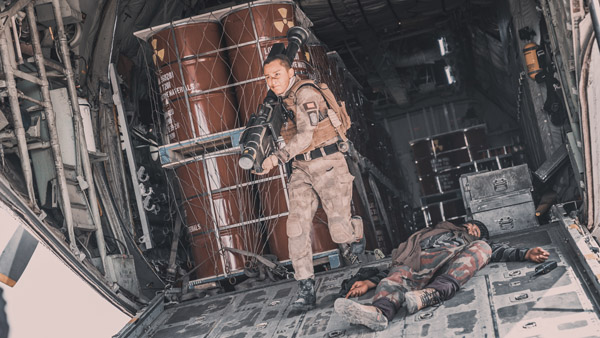 |
|
[Photo provided to China Daily] |
Liu Yang, a film commentator with the People's Daily, says that there was a discussion in the country on whether it was worth making so much of an effort just to save just one life, when Saving Private Ryan was screened in China in the late 1990s.
"Some Chinese found it difficult to understand the rationale at that time," she says. "But, a similar mindset in Operation Red Sea is now widely accepted."
Last year, Wolf Warriors 2, another Chinese film based on the evacuation from Yemen earned 5.67 billion yuan at the box office, becoming the highest-grossing Chinese film in history. Though the film was widely hailed for its patriotism, many also criticized its belligerence and unrealistic portrayals of a Rambo-like solo hero.
In contrast, Yin Hong, a media professor at Tsinghua University, says Operation Red Sea emphasizes cooperation. "And it (Operation Red Sea) gives us new perspectives about how patriotism can be expressed. It also focuses on the significance of a group rather than individual heroism.
"In the film, a balance between a commercial approach and mainstream ideology is also struck."
Nevertheless, he says that the spotlight on the group comes at the cost of an in-depth portrayal of each character, which was done in Wolf Warriors 2.
Still, he says, Operation Red Sea represents a growing global perspective for the Chinese because in the film Chinese soldiers stop terrorists from getting hold of material which could be used to make nuclear weapons.
"The fight against terrorism is a global one," Yin explains. "So, the adversaries in the film are not only enemies of China, but of humanity and world peace. This is a higher level."